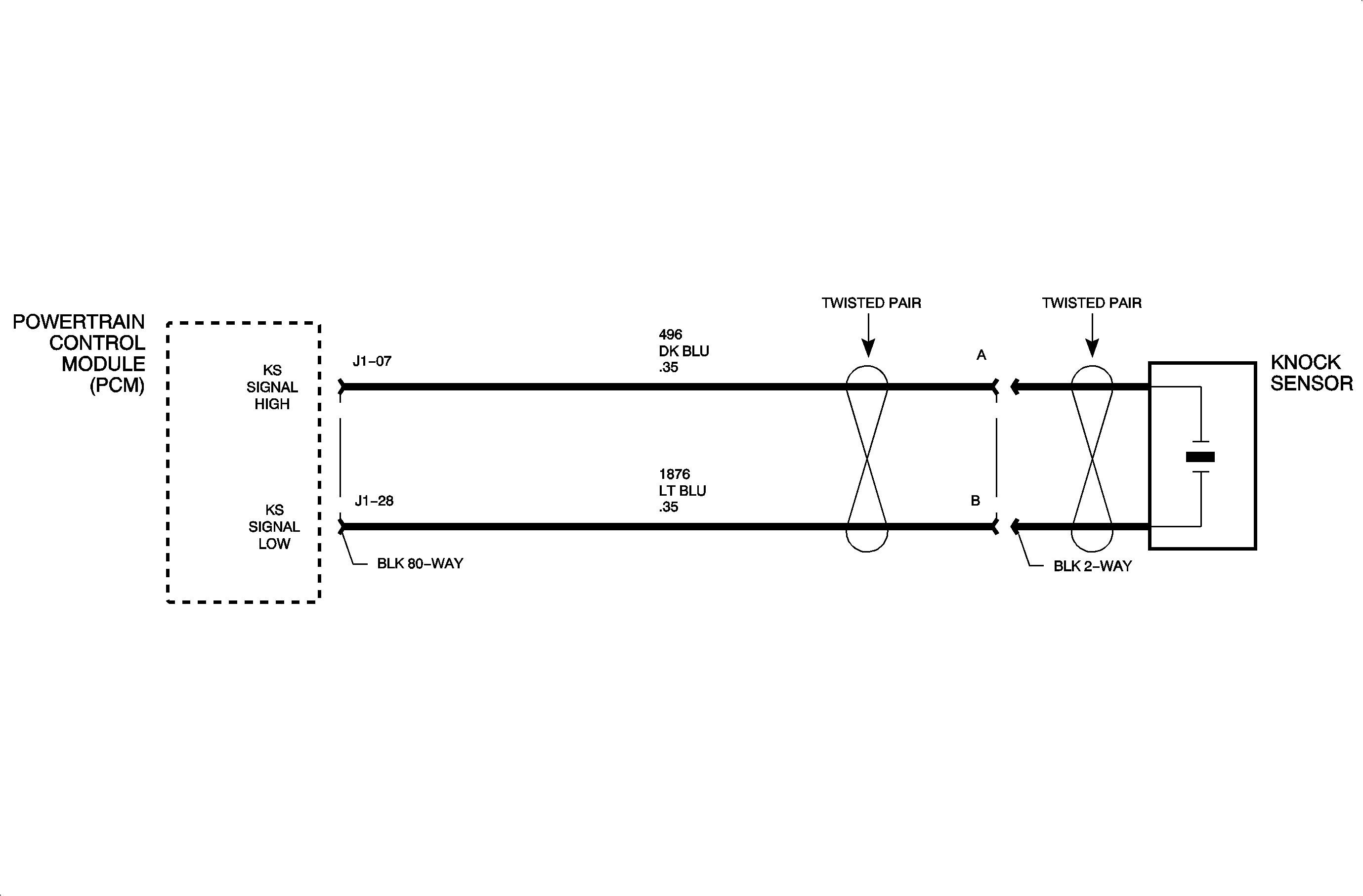
The knock sensor is a piezoelectric device that produces an AC voltage of different amplitude and frequency based on engine mechanical vibration. The amplitude and frequency are dependant on the level of knock the sensor detects. The powertrain control module (PCM) learns a minimum noise level at idle from the knock sensor and uses stored normal noise level calibration values for the rest of the RPM band. The knock sensor signal is only used during the top dead center combustion event of the firing cylinder. When in a combustion event, the PCM filters the knock signal and compares it to the normal calibration noise level for that RPM. If the PCM has determined that knock is present during the combustion event, it will retard timing on the next firing cylinders until the knock is eliminated. The PCM will always try to work back to a zero compensation level or no spark retard. DTC P0325 sets when the PCM has detected an internal hardware problem with the knock sensor detection circuitry.
DTC Parameters
DTC P0324 or P0325 will set when the PCM sends an internal test knock signal into the knock detection circuitry and the signal is less than or greater than the expected amplitude and/or frequency when:
| • | The condition exists twice in one ignition cycle. |
| • | The engine speed is between 1400-4000 RPM. |
DTC P0324 or P0325 diagnostic is run once per ignition cycle with engine within the calibrated RPM window.
DTC P0324 or P0325 is a type B DTC
Diagnostic Aids
Important: Refer to the Service Stall System (SSS) user guide for PCM reprogramming procedure.
DTC P0324 or P0325 sets due to an internal PCM hardware problem in the knock sensor detection circuitry. A short to ground, open or short to voltage on the external wiring should NOT affect the internal test knock signal.
Replace the PCM.
